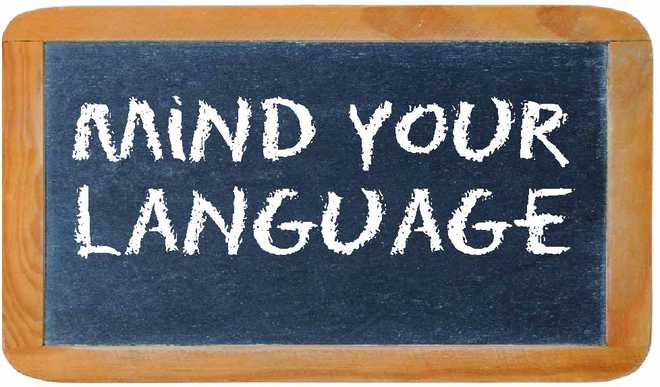The noun ‘scam’ has been around since the 1960s. It usually implies a fraudulent scheme or a swindle. Rackets involving financial misappropriation of money are identified as scams. In India in recent years, both private individuals and public figures wielding authority have unleashed scams on unsuspecting fellow citizens. The word scam resurfaced during recent election campaigns and its use as an acronym was widely reported on national media.
An acronym is a word which is formed by using the first letters of names of Institutions or organisations as in WHO (World Health organisation) or AIIMS ( All India Institute of Medical Sciences). Scam, we must remember, is a word in itself. As observers of language use, we need to understand that it was turned into an acronym, first by our Prime Minister and subsequently by leaders of other political parties.
The Prime Minister used the word scam as an acronym to sum up his political opponents: “Samajwadi, Congress, Akhilesh and Mayavati,” drawing chortles from sections of his audience. Akhilesh Yadav responded to this aggravation by retorting that SCAM as an acronym could also imply “Save Country from Amit and Modi.” Not to be outdone in dexterity, Rahul Gandhi joined the fray declaring that the acronym stood for “Service, Courage, Ability and Modesty;” all of which qualities were the hallmark of his party. The Prime Minister rebutted declaring that the word ‘seva’ (service) could never be associated with ‘scam.’ This occasions the raising of a pertinent grammatical query.
Since scam has a specific meaning, how should we respond to the acronyms that are now flooding social media? It is common knowledge that 'seva' quite often becomes an excuse for scams. The entire play with acronyms is clearly a game plan to distract and deflect from serious issues.
Is it possible to dignify name calling by placing acronym-formation at par with sport? The young, delighting in the play with language routinely expand proper names into acronyms and provide new interpretations. Countless examples of adolescence come to mind, when proper names were regularly expanded into flattering or insulting acronyms depending on whether the person so targeted was popular or disliked.
Acronyms are handy tools and a source of fun but they tend to have a short life and remain self-serving. Political leaders who resort to name calling or propaganda through acronyms in lieu of informed mandates, merely project themselves as “Socially Confused Adult Males.” Should we feel pride when political leaders of the world's burgeoning democracy collectively display a surfeit of adolescent wit?
Words with objectionable meanings can be turned into acronyms to make unsubstantiated allegations and work at the level of slandering in public. Acronyms can be used to inflate identity as well but this does not provide evidence of the vision required to ameliorate the lives of ordinary Indians. Shouldn't ethics be the central concern of all political manifestos instead of the negativity generated by inane word play?
Scamming (verb, present participle) by socially confused adult men can result in spam. 'Spam' initially meant a paste made with ham. 'Spam' is also a product that belongs to our modern technological world. Unsolicited messages for the purpose of advertising sent to a large number of users on the Internet are termed spam.
Does spam sound better if turned into the acronym; “Serious Political Action Manifesto?” Not really.
When unlikely acronyms hold sway, there is an increase in unsolicited messages to netizens and citizens. When leaders will engage with great idea(l)s, statesmanship shall replace scamming and spamming, and take political discourse a notch higher.
Unlock Exclusive Insights with The Tribune Premium
Take your experience further with Premium access.
Thought-provoking Opinions, Expert Analysis, In-depth Insights and other Member Only Benefits
Already a Member? Sign In Now











